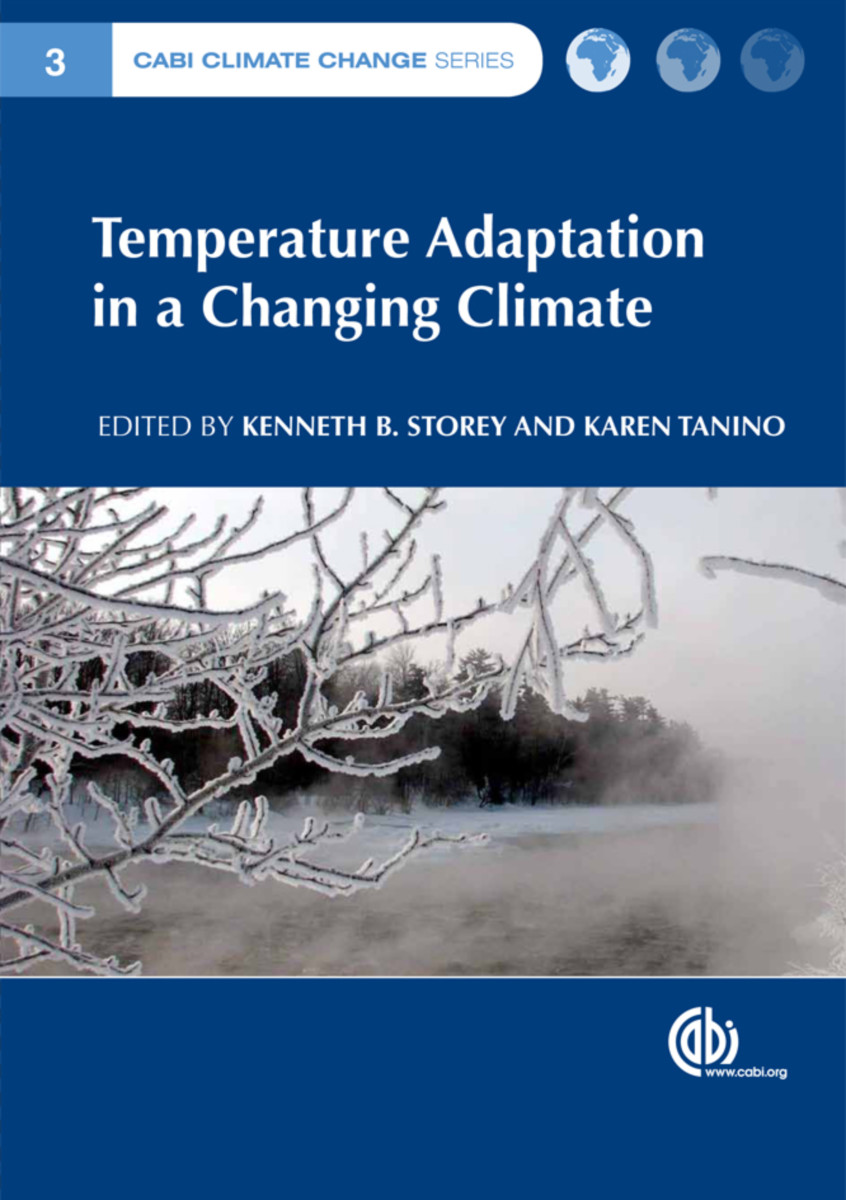- Publisher
CABI - Published
1st March 2012 - ISBN 9781845938222
- Language English
- Pages 256 pp.
- Size 6.75" x 9.75"
- Images 40 illus
Temperature adaptation is a much neglected field in the minds of climate change researchers and policy makers. However, increasing fluctuations in temperature means that the risk of cold and heat stress will pose an increasing threat to both wild and cultivated plants and animals, with frost injury expected to cause devastating damage to crops on an increasingly large scale. Improving shared knowledge of the biological mechanisms of temperature adaptation in plants and animals will help prevent major losses of crops and genetic resources in the future. This book is the first to focus on the mechanistic similarities between species in their responses to temperature in a multi-organism approach that addresses the challenges and impacts of climate change on temperature adaptation in micro-organisms (including pathogens), invertebrates, economically and scientifically important plants and vertebrates in both terrestrial and marine environments. The book concludes with a focus on the interactions between organisms, exploring common mechanisms in temperature adaptation.
"…on the whole, the book presents a good summary of a very wide field. Summing Up: Recommended."
W. E. Williams, St. Mary's College of Maryland - , CHOICE
1. Introduction: Nature at risk
2. Temperature Perception and Signal Transduction - Mechanisms across Multiple Organisms
3. Microorganisms and Plants: a Photosynthetic Perspective
4. Insects
5. Temperature Adaptation in Changing Climate: Marine Fish and Invertebrates
6. Fish: Fresh Water Ecosystems
7. Strategies of Molecular Adaptation to Climate Change: the Challenges for Amphibians and Reptiles
8. The Relationship between Climate Warming and Hibernation in Mammals
9. On Thin Ice: Marine Mammals and Climate Change
10. Climate Change and Plant Diseases
11. Trees and Boreal Forests
12. Native and Woody Plants
13. Annual Field Crops
14. Perennial Field Crops
15. The Potential Impact of Climate Change on Temperate Zone Woody Perennial Crops
16. Temperature Adaptation Across Organisms
Karen K. Tanino
Karen K. Tanino is a Professor of Plant Sciences at the University of Saskatchewan. She chairs the Northern Agriculture Thematic Network, University of the Arctic (a consortium of over 121 institutions circumpolar) and holds an Adjunct Professorship with IWATE University, Morioka, Japan.
Kenneth B. Storey
Kenneth B. Storey is a Professor of Biochemistry at Carleton University in Ottawa and holds the Canada Research Chair in Molecular Physiology.


